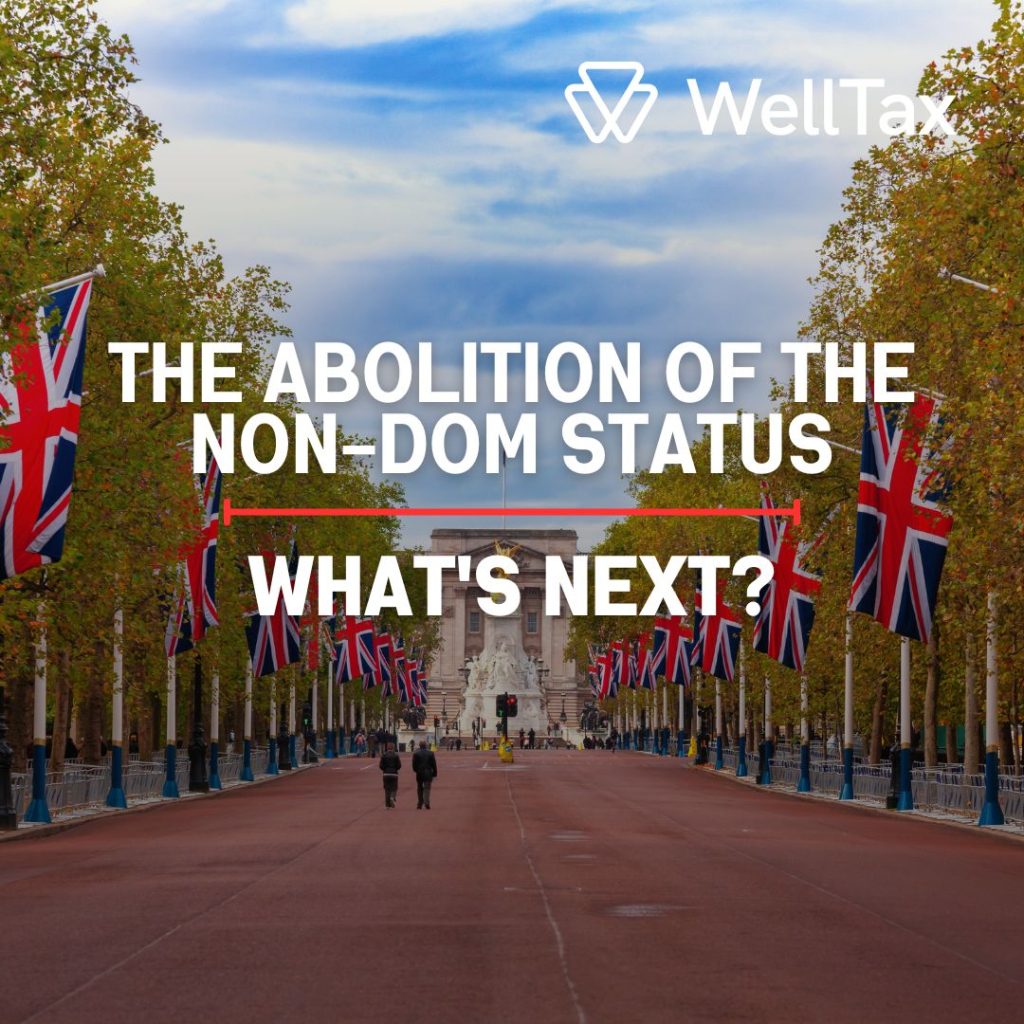The concept of non-dom (non-domiciled) status has long been present within the United Kingdom’s tax framework and refers to UK tax-residents living in the UK but whose permanent residence, or domicile, is located outside the country.
As part of the March 2024 Budget, Chancellor Jeremy Hunt has announced the abolition of the current rules for the non-UK domiciled individuals which will be replaced with a more equitable system based on residence rather than domicile, starting from April 2025.
What is the non-dom status?
The non-dom status applies to individuals who reside in the UK, and thus considered tax-resident there, but with permanent residence, or domicile, located outside the country.
There are two main approaches to identify an individual’s domicile:
- Domicile of origin: this is usually the country in which their father was domiciled at the time of their birth.
- Domicile of choice: if, as an adult, the individual decides to move away from the domicile of origin and live permanently in another country, a domicile of choice can be acquired in that new country.
Whether the individual relocates to another country or not, they can maintain their domicile of origin if they can reasonably demonstrate that their permanent home is still their country of origin and that they plan to return to that country indefinitely at some point in the future.
The domicile is thus different from the residence, which usually refers to where an individual lives and can be determined by a statutory residence test.
Current rules for non-dom individuals
The current rules establish that individuals who benefit from non-dom status are only taxed in the UK on income earned within the country; they are not obliged to pay UK taxes on income generated elsewhere in the world unless they are brought to the UK, according to the Remittance Basis of taxation.
Non-dom individuals who want to claim the Remittance Basis must do so in their Self-Assessment each year. For the first 7 years of UK tax residence, the Remittance Basis can be freely claimed, however after then, non-doms individuals who want to claim it will be subject to an annual fee of either:
- £30,000 for individuals that have been tax-resident in the UK for at least 7 of the previous 9 tax years.
- £60,000 for individuals that have been tax-resident in the UK for at least 12 of the previous 14 tax years.
An exemption arises for unremitted foreign income and gains below £2,000; in this case there is no need to claim the Remittance Basis, which will apply by default.
Starting from 2017 the non-dom status rules do not apply to individuals who have been UK tax-resident for at least 15 years of the previous 20 tax years, in which case they are treated as domiciled in the UK and are not allowed to claim the Remittance Basis.
New Foreign Income and Gains (‘FIG’) rules
From 6 April 2025 the existing non-dom status remittance basis provision will be discontinued.
Newcomers to the UK will only be able to claim exemption from UK tax on their foreign income and gains (FIGs) during their first 4 years of tax residence, provided they have had 10 years of consecutive non-UK residency.
During this period, FIGs can be brought into the UK without facing taxation, although any entitlement to Income Tax and Capital Gains tax-free allowances will be lost.
Starting from the fifth tax year, these individuals will be subject to UK tax on their income and gains generated both in the UK and overseas.
Transitional provisions for current non-dom individuals
UK tax-residents that currently benefit from non-dom status will be able to move from the remittance basis to the arising basis of taxation, taking advantage of the new FIG rules until their fourth year of tax residence.
For those who will not qualify for the 4-year FIG regime, some transitional measures have been put in place:
- For the tax year 2025/26, only 50% of their foreign income will be subject to taxation; this will not be applicable to foreign chargeable gains. Taxes will be due on the individual’s worldwide income starting in 2026/27 according to the arising basis.
- A reduced tax rate of 12% will be applied for 2025/26 and 2026/27 to remittances of FIG that arose prior 6 April 2025.
- Individuals who have claimed the remittance basis will be able to rebase personally held capital assets to their 5 April 2019 valuation for disposals on or after 6 April 2025.
Inheritance Tax
The Inheritance Tax (IHT) regime is currently based on the location of the assets and the domicile of the individual. A UK resident with non-dom status only must pay IHT on assets held in the UK.
The Government has announced the transition to a residence-based system starting from 6 April 2025, however, there is no set timetable for the changes to be implemented and the specifics are still subject to consultation.
The new rules establish an IHT charge on worldwide assets when an individual has been resident in the UK for 10 years and keep individuals currently domiciled (or deemed domiciled) in the UK within the scope of IHT until they have been non-resident for 10 years.
The treatment of non-UK assets placed into a trust by non-domiciled individuals before April 2025 will not change, and they will not be subject to UK IHT.
Conclusions
These changes to the non-domiciled tax regime are significant, aiming for simplification yet retaining layers of complexity; transitional provisions offer time for adjustments before the new rules take effect.
Despite the ongoing discussion on how these changes will be implemented and the upcoming elections that could change the scenario, it is advisable for all individuals who currently benefit from their non-dom status to assess their situation to manage their assets at best.
For more information on our tax advisory services, please visit our Private Clients page.

